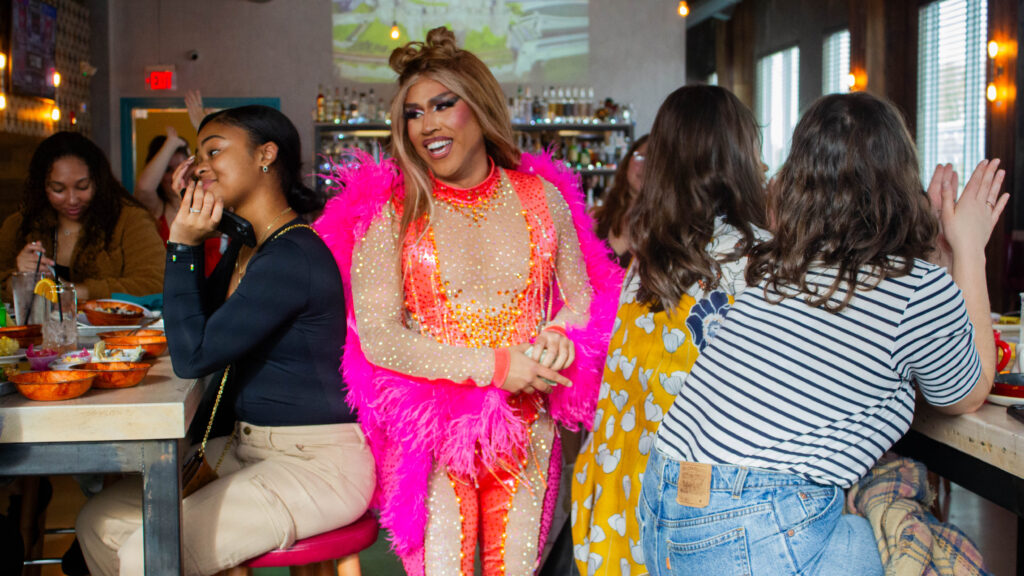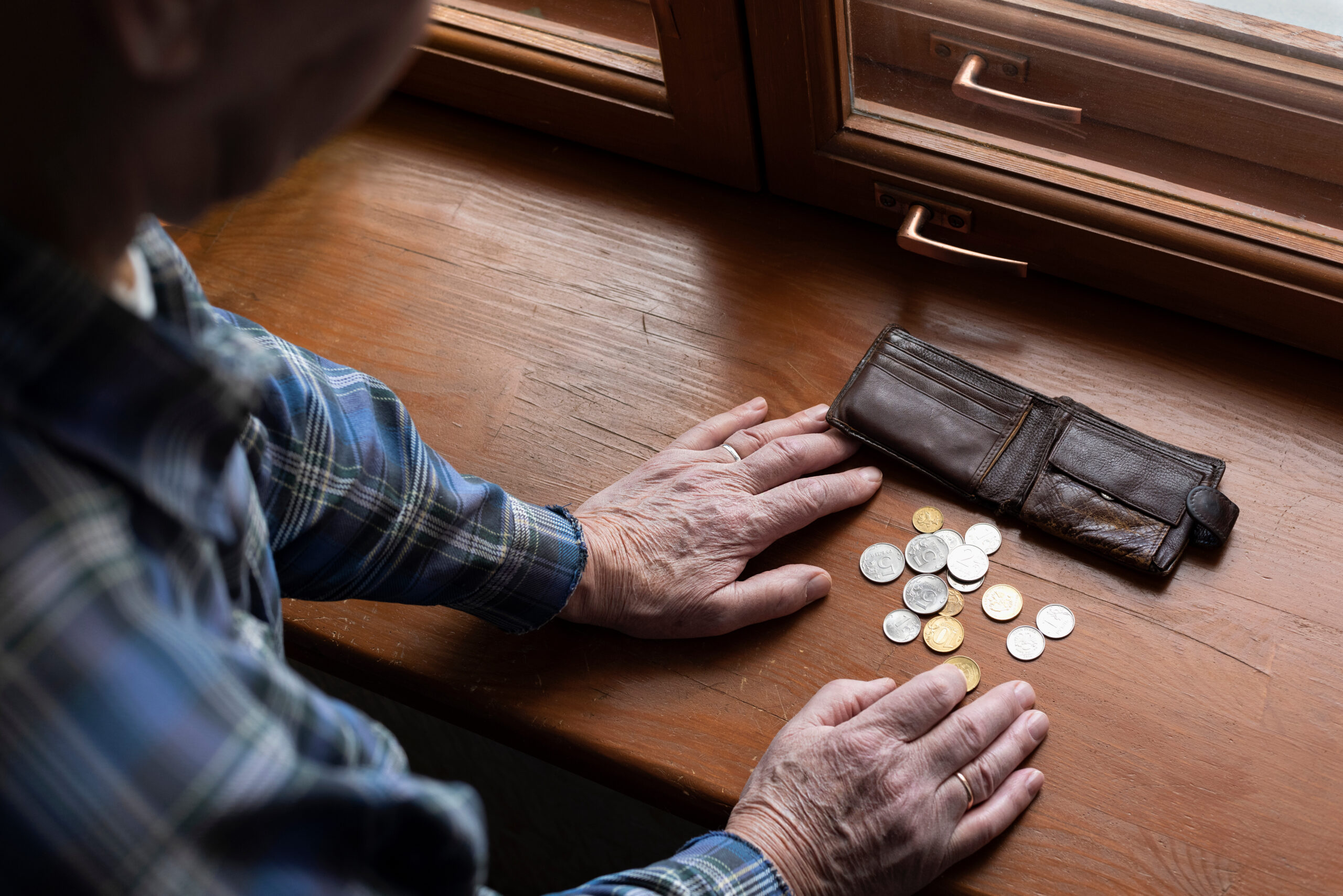BOSTON — Her sets are energetic and her crowdwork is unapologetically salacious. You might find her in a bright pink feathered ensemble one day and a beaded emerald bodice with blue tulle sleeves the next.
In every regard, Linda Maripossa is poised to stand out when she struts around Ghost Pepper Bar in Dorchester.
If you attend one of her shows, you’ll soon discover that Maripossa is a self-proclaimed Latina diva who refuses to start a performance without the sound of loud cheering.
Yet, despite her prima donna persona, this young Peruvian drag queen is part of a wave of change bringing about more inclusion in Boston’s drag community.
Every month, Maripossa hosts a drag brunch at Ghost Pepper Bar where she performs alongside a cast primarily made up of other Black and Brown drag performers. You can also find her hosting shows and brunches in different venues throughout the city, including Club Cafe, Painted Burro and Vialé. These shows provide a space of belonging for them, Maripossa shared, one that can’t be found for queer Latines in the city—at least not in the way some might need.
“It’s sad that it doesn’t exist here in Boston,” Maripossa said. “I really long for a Latin community feel.”
Much of this stems from a lack of queer spaces in general. Every year, more LGBTQ+ bars and nightclubs in Boston close their doors for good. At least five such venues have permanently shut down since 2019.
As these physical meeting spaces disappear, Maripossa said queer Latines in the city are increasingly scattered from one another. For her, this can feel “isolating.”
There are organizations throughout Boston that explicitly serve queer and transgender people of color as a whole. In fact, the growing collective named FROLIC is one of the most visible groups that directly support these communities, spearheading parties and POC queer nights at various bars and clubs.
Grouping everyone together isn’t always as helpful, however.
“It’s abnormal that there’s not more Latin queer nights, for example,” Maripossa said. “The intersectionality aspect is important.”
She’s not alone in her endeavor or in recognizing a need for more spaces that understand those intersections.
PFLAG is one of the nation’s largest organizations advocating for LGBTQ+ people, with over 400 chapters throughout the U.S. and four chapters in Massachusetts.
Angelina Leon, senior partnerships and communities manager at PFLAG National, shared that the organization started a virtual program to address how identifying as Latine and LGBTQ+ can breed unique experiences.
“When it comes to the Latino community being so diverse and so expansive, we have our own set of challenges,” Leon said. “For me, on top of being Latina and queer, I’m also an immigrant.”
The PFLAG Connects: Comunidad Latina program was started in April 2021 to combat the loneliness people were experiencing during pandemic shutdowns. The program facilitates free, online discussions between queer Latines throughout the globe, venturing into topics like familial relationships and belief systems.
“These spaces are important because it’s hard to explain to someone that isn’t part of the Latino community how essential it is to have someone that just gets it,” Leon said. “They might not know the challenges when it comes to identity…where you’re either LGBTQ+ or you’re Latina.”
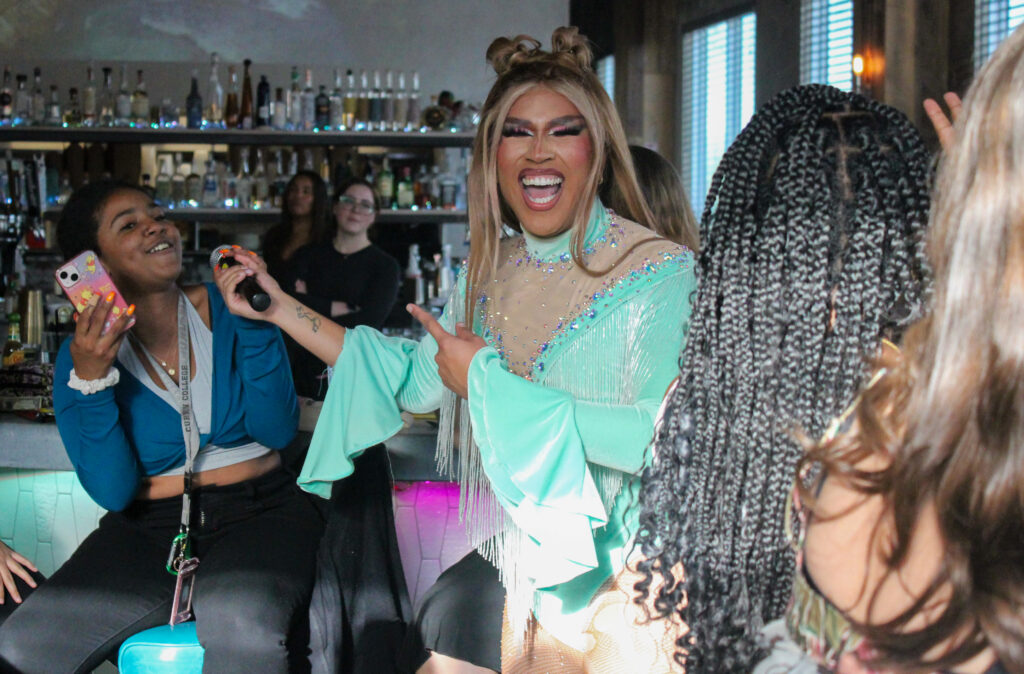
Feeling like these identities clash in different spaces is an experience one Latine performer has had themselves.
Just JP, a nonbinary Salvadoran drag queen, said they struggle to make drag friends they can speak Spanish with. This is partially because places where Spanish speakers and Latines gather aren’t always LGBTQ-inclusive.
“As a Latine chubby person that’s queer, sometimes I just don’t feel like the Latino clubs are the ones that I should be at,” JP said.
On the other hand, JP warned that blindly leaning into the drag community can also run the risk of Latines being tokenized.
“I live them, so, I kind of forget sometimes of some of my identities until it clicks to me that..I need to make sure that [shows that book me are] not just trying to meet a quota of diversity,” JP said.
Two years ago, in light of the need for more inclusive spaces, Just JP helped launch a space as inclusive as one might get: an open drag stage.
The pandemic closed down the last of Boston’s venues with open drag stages, where fresh newcomers to the drag world could make their debuts. JP’s Drag Stroll stepped in to fill that void.
“We welcome all types of queer art so if you’re burlesque or stand up, it’s an open stage for anyone drag or drag adjacent,” JP said.
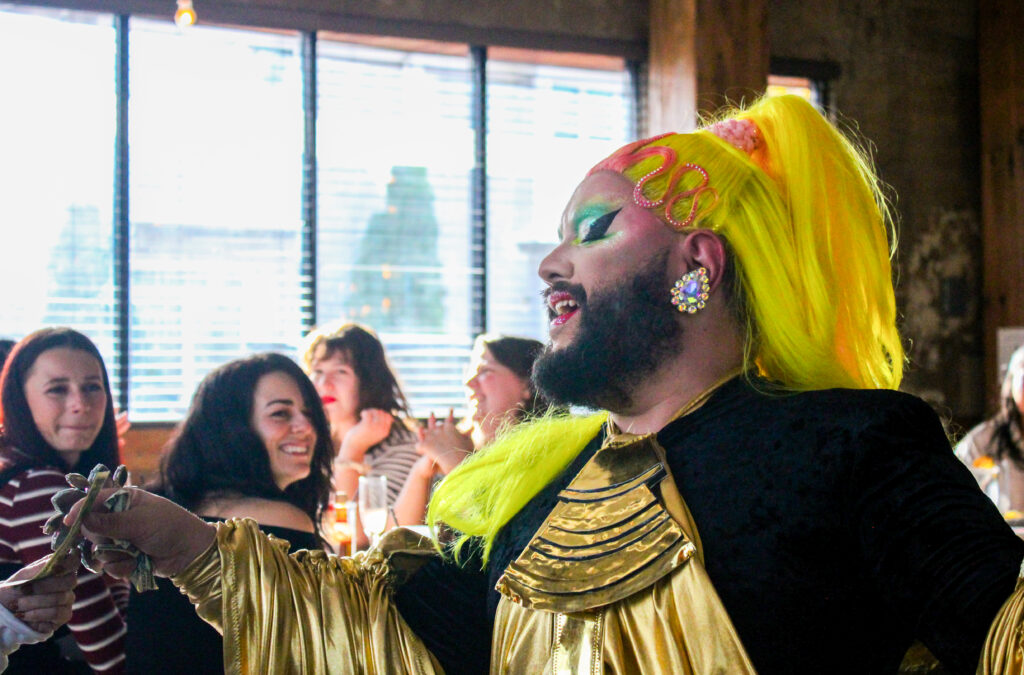
Thanks to spaces like the Drag Stroll and Maripossa’s drag brunches, there are more opportunities for BIPOC performers. In turn, the scattered presences of queer Latines that they’ve experienced and the fears of tokenization is a far cry from the experience that some newcomers now get.
Iris Laveauis, a Dominican drag queen, sings a different tune about her journey getting into drag.
“It’s just very compact and small and we all know each other a little bit,” she said. “We’re just trying to stay strong as not a big Latina community so we look out for each other as much as we can.”
When she’s not on stage, Iris goes by Jolene Paredes. For years she made her money doing makeup, but when the pandemic hit she suddenly found herself without a job.
Paredes said it was the support of Just JP and other Latine drag performers that got her into more shows and connected her with bookers.
Drag became her only source of income for weeks, often doing multiple back-to-back shows. Their help ensured she survived financially.
“I’m just so thankful to the Boston drag community—the Latino community. They’ve just been so good to me,” she said.
Boston’s queer nightlife is ever-changing. New collectives and venues are popping up while old ones are shutting their doors. After years without fully inclusive spaces to rely on, these Latine drag performers have learned to rely on one another.
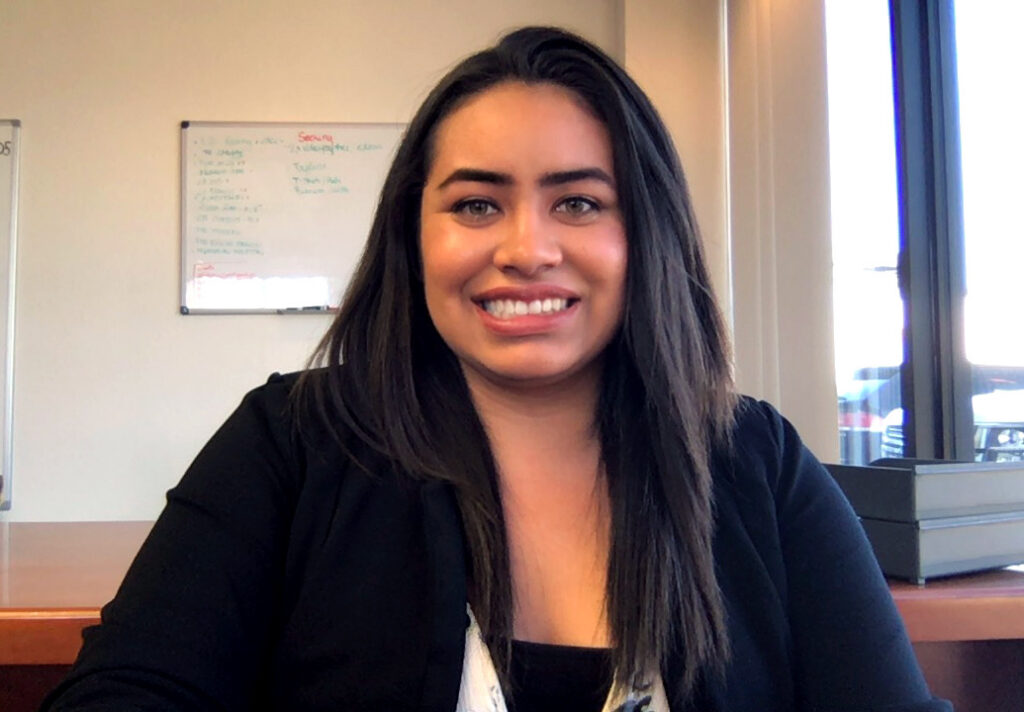
Jewel Sanchez is a recent journalism graduate from Boston University. Growing up surrounded by Chicano culture in California, she is a proud Latina and first-generation college graduate. Jewel aims to share the stories of underrepresented communities and give a voice to other Latines.
